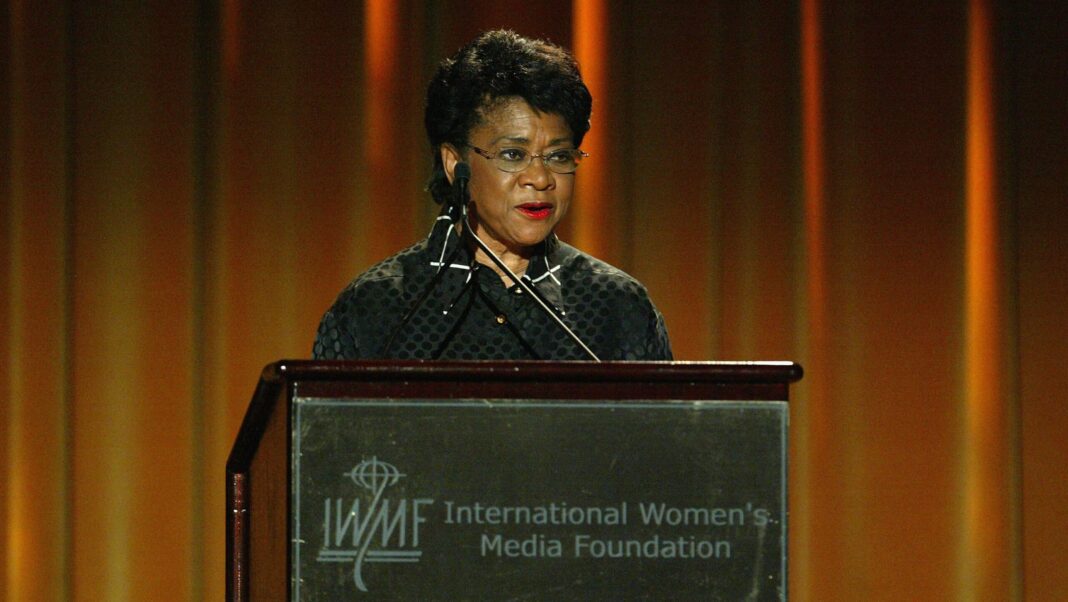Belva Davis, the legendary Emmy-award winning journalist, has passed away at the age of 92, leaving behind a profound legacy and a trail of inspiration. Dubbed the first Black woman television journalist on the West Coast, her career not only broke barriers but also paved the way for countless journalists to follow in her footsteps. According to a report by Bay Area’s KQED, Davis’s influence reached far beyond journalism, touching lives and communities in ways few could measure.
Davis’s illustrious career spanned decades and a wide array of topics. From covering the tumultuous 1964 Republican National Convention to the harrowing Jonestown massacre, her reporting made an indelible mark on American journalism. She wasn’t just a spectator; she reported on pivotal moments in history, like the political murders of San Francisco Mayor George Moscone and Harvey Milk, who was notably the first openly gay person elected to public office in the city. In addition to these, she also interviewed iconic figures such as Coretta Scott King and Fidel Castro, tackling issues that resonated deeply with her Bay Area community.
The seminal moment that sparked her desire to enter television journalism occurred during her coverage of the 1964 Republican National Convention for KRON, a local radio station. The racist treatment she endured from colleagues fired her passion to break into television—a medium she recognized as vital for storytelling and representation. This realization is captured in her 2011 memoir, “Never In My Wildest Dreams: A Black Woman’s Life in Journalism,” where she expressed a deep yearning to shine a light on the stories of Black Americans that were often relegated to the shadows.
“Journalists were beginning to bring the stories of Black Americans out of the shadows … and into the light of day. I wanted to be one of them,” Davis wrote, capturing her motivation not just to report but to change the narrative. This determination led her to KPIX in 1966, where she became a pioneer as the first Black woman television journalist on the entire West Coast. Her tenure at KPIX lasted until 1977, after which she joined KQED. Here, she continued her impactful work until her retirement in 2012, solidifying her legacy over a remarkable career that spanned more than 50 years.
Belva Davis was born as Belvagene Melton in Monroe, Louisiana, in 1932. As a child, she relocated with her family to Oakland, California. She graduated from Berkeley High School in 1951, becoming the first in her family to complete high school. Although she was accepted into San Francisco State University, financial constraints prevented her from attending, yet this did not deter her aspirations. She began writing freelance articles for JET magazine in 1957 and found opportunities in various local Bay Area publications before ultimately breaking into radio and television.
In addition to her reporting, Davis was an active member of the American Federation of Television and Radio Artists (AFTRA), even serving as vice president at one point. Her contributions to journalism were recognized with eight Emmy Awards and lifetime achievement honors from both the National Association of Black Journalists and American Women in Radio and Television. These accolades reflect not just her individual success but also the impact she had on her community and the evolution of journalism.
Belva Davis is survived by her husband, Bill Moore, her children from a previous marriage, Darolyn Davis and Steven Davis, and her granddaughter, Sterling Davis. Her journey as a trailblazer in journalism resonates as we remember her life and contributions, serving as a powerful reminder of the importance of representation in media and the relentless pursuit of truth.
Rest in Power, Belva Davis.



